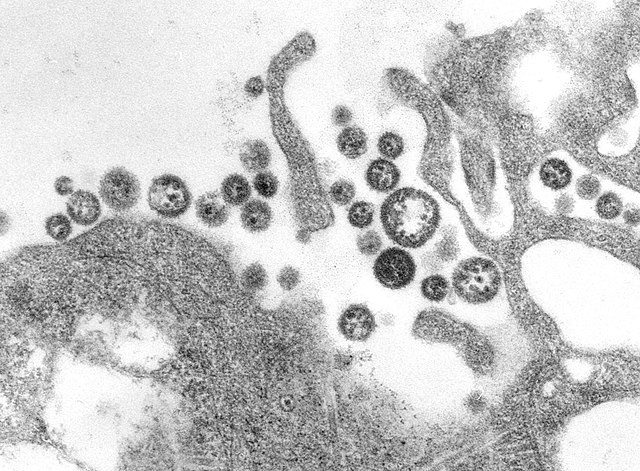Mononegavirales is an order of negative-strand RNA viruses which have nonsegmented genomes. Some members that cause human disease in this order include Ebola virus, human respiratory syncytial virus, measles virus, mumps virus, Nipah virus, and rabies virus. Important pathogens of nonhuman animals and plants are also in the group. The order includes eleven virus families: Artoviridae, Bornaviridae, Filoviridae, Lispiviridae, Mymonaviridae, Nyamiviridae, Paramyxoviridae, Pneumoviridae, Rhabdoviridae, Sunviridae, and Xinmoviridae.
Mononegavirales
The genome organization and RNA synthesis of order Mononegavirales
Life cycle of vesiculoviruses
Mononegavirales phylogenetic tree
Negative-strand RNA virus
Negative-strand RNA viruses are a group of related viruses that have negative-sense, single-stranded genomes made of ribonucleic acid (RNA). They have genomes that act as complementary strands from which messenger RNA (mRNA) is synthesized by the viral enzyme RNA-dependent RNA polymerase (RdRp). During replication of the viral genome, RdRp synthesizes a positive-sense antigenome that it uses as a template to create genomic negative-sense RNA. Negative-strand RNA viruses also share a number of other characteristics: most contain a viral envelope that surrounds the capsid, which encases the viral genome, −ssRNA virus genomes are usually linear, and it is common for their genome to be segmented.
Negative-strand RNA virus
Vesicular stomatitis virus (VSV) virion and Mononegavirales genomes
Phylogenetic tree of Negarnaviricota (top), genome of different members and major conserved proteins (bottom)
Lassa virus (Arenaviridae)







